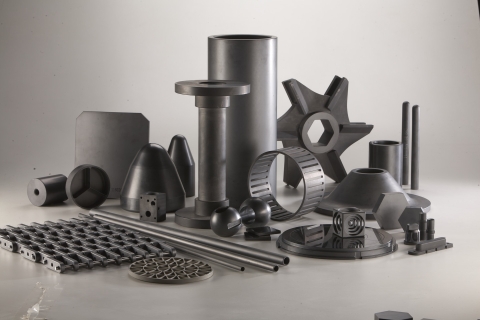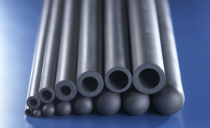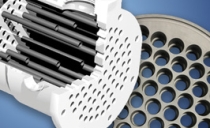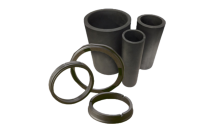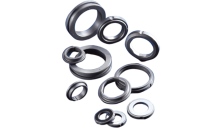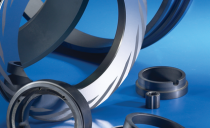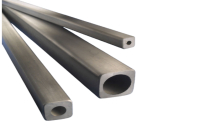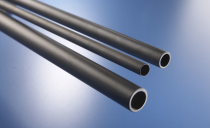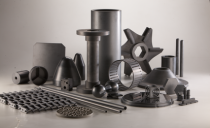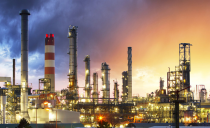Specialty Ceramics
Saint-Gobain Performance Ceramics & Refractories’ specialty ceramics' products help customers to address unique challenges in thermal and chemical processing, heat exchangers, industrial metrology, temperature sensing, brazing, mechanical seals, semiconductor wafer processing, sandblasting and renewable energy generation applications.
The specialty ceramics portfolio consists of a wide range of products, sold as well-known brands:
- Hexoloy® sintered silicon carbide
- Norbide® hot pressed boron carbide
- Noralide® hot pressed silicon nitride
- Silit® siliconized silicon carbide
- Advancer® N-Durance, Refrax 20E nitride bonded silicon carbide
- Alundum® Aluminum oxide materials
- Magnorite® MgO materials
- Durafrax® Alumina materials
Saint-Gobain Performance Ceramics & Refractories’ utilize materials expertise, innovative designs, creative engineering and precision manufacturing processes to deliver reliable solutions to global customers in automotive, chemical, aerospace, non-ferrous metals, nuclear and other renewable energy, industrial pumps and sealing industries; as well as OEM equipment makers and machine shops.
Solution By Application
Click on your application to find more:
Corrosion Resistant Ceramics
Chemical Processing
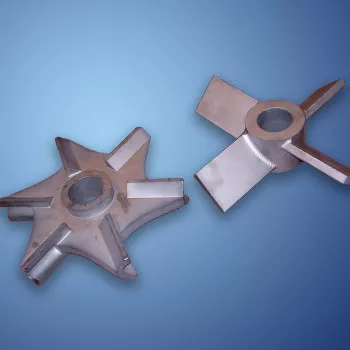
Hexoloy® sintered silicon carbide has been successfully used in chemical processing applications for over 30 years. It has been used in a wide range of applications including:
- Seal face and seat in mechanical seals used in pumps
- Tubes in shell and tube heat exchangers
- Thermowell protection tubes
- Valve lining for handling mining slurries
- Nozzles
- Sparger tubes
- Impellers for mixing
- Raschig rings
- Chemical reactor vessels
Hexoloy® silicon carbide products exhibit excellent corrosion resistance in contact with liquid and gaseous chemicals with a wide range of pH values. These products also offer low friction coefficients, excellent wear resistance, high strength and high thermal conductivity.
Hexoloy® sintered silicon carbide sets the standard for the most effective ceramic material for chemical corrosion resistance.
Corrosion Resistance Of Different Material Against Chemicals
| Test Environment* | Corrosive Weight Loss (mg/cm2 yr) | ||||
| Conc. Reagent (Wt%) | Temp. (°C) |
Hexoloy® SA (No Free SiC) |
Reaction Bonded SiC (12% SiC) |
Tungster Carbide (6% Co) |
Aluminium Oxide (99%) |
| 98% H2SO4 | 100 | 1.8 | 55.0 | >1,000 | >65.0 |
| 50% NaOH | 100 | 2.6 | >1,000 | 5.0 | 75.0 |
| 53% HF | 25 | <0.2 | 7.9 | 8.0 | 20.0 |
| 85% H3PO4 | 100 | <0.2 | 0.5 | >1,000 | 7.0 |
| 45% KOH | 100 | <0.2 | >1,000 | 3.0 | 60.0 |
| 25% HCI | 70 | <0.2 | 0.9 | 85.0 | 72.0 |
| 10% HF plus 57% HNO3 | 25 | <0.2 | >1,000 | >1,000 | 16.0 |
*Test Time: 125 to 300 hours of immersion testing, continuously stirred.
FAQ
Can sintered silicon carbide be used at high temperatures in corrosive environments?
Hexoloy® sintered silicon carbide has been successfully used in corrosive environments at temperatures up to 1,500°C. It is important to consider environmental chemistry and thermomechanical factors before designing process components with silicon carbide ceramics.
What advantages do sintered silicon carbide have over other ceramic materials in terms of chemical resistance?
Hexoloy® sintered silicon carbide is virtually inert to corrosion from a wide range of chemicals, whereas most other ceramic materials demonstrate solubility over time.
What are the common uses of sintered silicon carbide in corrosion resistant applications?
Sintered silicon carbide can be used in a number of key components, including:
- Mechanical seal faces and rings for pumps
- Tube and tube-sheets for shell and tube heat exchangers
- Chemical reactor vessels
- Valve linings Nozzles
- High temperature reactor packing
